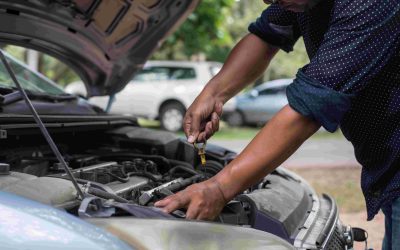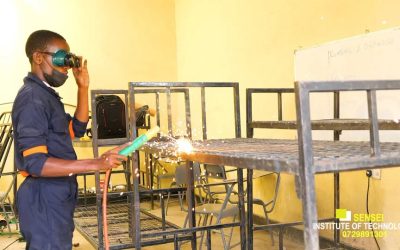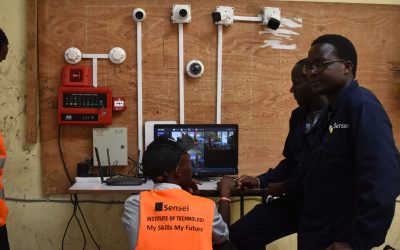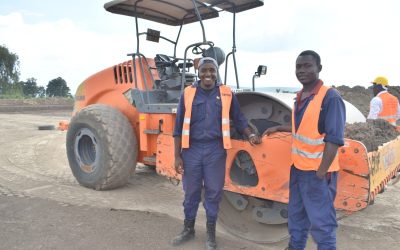Steel Fixing in Kenya: Everything You Need to Know (2025 Comprehensive Guide)
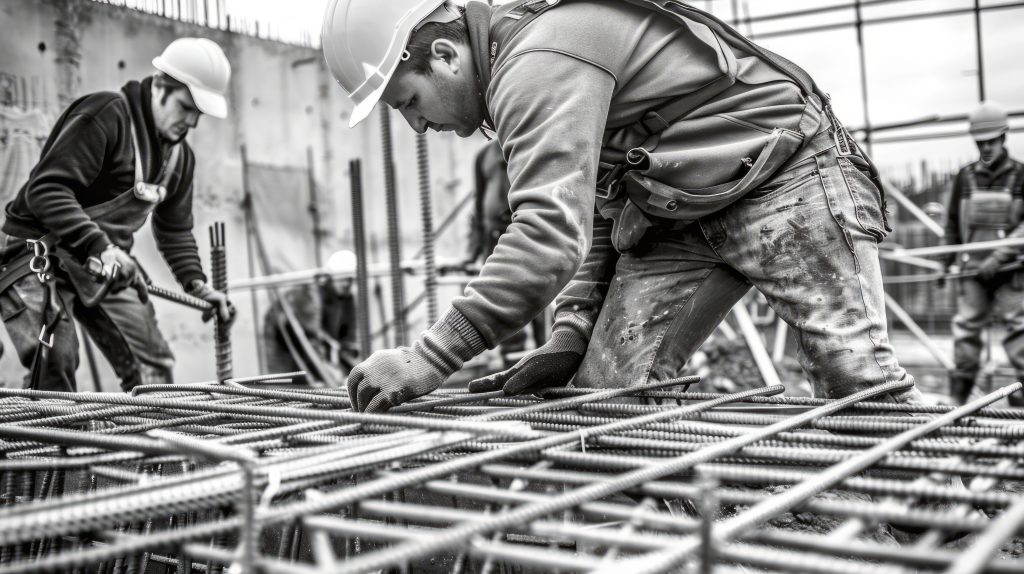
Steel fixing is one of the most critical trades in Kenya’s construction industry — it’s the hidden backbone that holds every concrete structure together.
From bridges to skyscrapers and roads, skilled steel fixers ensure the strength, safety, and durability of Kenya’s growing infrastructure.
In this guide, we’ll explore what steel fixing is, the tools and techniques involved, career opportunities, average salaries, and how to train professionally at Sensei Institute of Technology — Kenya’s leading technical training institution.
1. What Is Steel Fixing?
Steel fixing is the process of cutting, bending, and tying reinforcing steel bars (rebars) used to strengthen concrete in construction projects.
Concrete on its own is strong in compression but weak in tension — this is why we add steel reinforcement. The steel gives the structure tensile strength, preventing cracks and structural failure.
Steel fixers prepare and position these bars based on engineering drawings and ensure they are securely tied before concrete is poured.
2. The Role of Steel Fixers in Construction
Steel fixers are the unsung heroes of every major construction site. Their work ensures that structures are strong enough to withstand weight, vibration, and environmental stress.
Key responsibilities include:
- Reading and interpreting engineering blueprints and bar bending schedules
- Cutting and bending steel bars to specified shapes
- Fixing reinforcement into position using wire ties and spacers
- Setting up reinforcement cages for columns, beams, slabs, and foundations
- Collaborating with engineers and masons during concrete pouring
3. Tools and Equipment Used in Steel Fixing
A professional steel fixer uses a range of hand and power tools to get the job done efficiently and safely.
| Tool | Purpose |
|---|---|
| Rebar Cutter & Bender | For cutting and shaping steel bars |
| Pliers & Binding Wire | For tying bars together |
| Measuring Tape & Chalk Line | For marking and layout |
| Steel Fixer’s Hammer | For adjusting bars |
| Work Gloves, Helmet, and PPE | For personal protection |
| Rebar Tie Gun (optional) | For fast tying in large projects |
4. Importance of Steel Fixing in Kenya’s Construction Industry
Kenya’s infrastructure development boom under Vision 2030 and the Affordable Housing Program has increased the demand for skilled steel fixers.
Steel fixing is essential for:
- Buildings and housing projects
- Bridges and flyovers
- Road construction (culverts, underpasses)
- Water tanks, dams, and reservoirs
- Industrial and commercial complexes
A poorly fixed reinforcement can cause structural failures, which is why trained and certified steel fixers are highly sought after.
5. Career Opportunities for Steel Fixers in Kenya
Steel fixing offers a stable and rewarding career path — whether you’re employed by a construction firm or self-employed.
Employment Opportunities
- Civil engineering contractors
- Real estate developers
- Government and county projects
- Private construction firms
- Industrial and infrastructure projects
Career Progression
You can start as a trainee or apprentice steel fixer and grow to become a site supervisor, foreman, or contractor with experience and certification.
Average Salary (2025 Estimates):
- Entry-level steel fixer: KSh 20,000 – 35,000/month
- Experienced fixer or foreman: KSh 50,000 – 100,000+/month
- Self-employed contractors can earn much more depending on projects.
6. Steel Fixing Training in Kenya — Sensei Institute of Technology
If you want to become a certified steel fixer, the best place to train is the Sensei Institute of Technology (SIT).
Sensei is Kenya’s leading TVET-accredited institution for hands-on technical training in construction and engineering trades.
About the Course
The Steel Fixing Course at Sensei Institute equips students with practical construction skills needed for both small and large-scale projects.
The program blends theory and real workshop experience, ensuring you can read drawings, bend bars, and fix reinforcement professionally.
Course Content Includes:
- Basics of construction materials and reinforcement
- Reading bar bending schedules and blueprints
- Measuring, cutting, and bending steel bars
- Tying reinforcement for beams, columns, slabs, and foundations
- Reinforcement placement for various structures
- Safety and quality assurance at the worksite
Why Train at Sensei Institute of Technology?
- 100% Practical Learning — Hands-on training in real construction projects.
- Accredited with Nationally recognized certification.
- Modern Training Equipment — Students use real construction tools and materials.
- Affordable Fees — Flexible payment plans available.
- Career Support — Sensei connects graduates with construction firms and contractors.
- Job-Ready Skills — Graduates are ready to work immediately after training.
Campuses
Sensei Institute offers steel fixing training at:
- Nakuru Campus
- Kitengela Campus
Both centers have fully equipped workshops for hands-on learning and are easily accessible from major towns.
💰 Course Duration & Fees
- Duration: 2 to 3 months (full-time)
- Fees: Around KSh 25,000 – 35,000 depending on location and package.
Certification
Graduates receive a Certificate, qualifying them for both local and international employment.
Learn more or apply here:
Sensei Institute of Technology – Steel Fixing Course
7. Starting a Steel Fixing Business in Kenya
Steel fixing is not only a job it’s a business opportunity.
Many trained steel fixers establish their own companies offering rebar work to contractors and individuals.
Steps to Start:
- Get certified through training at Sensei Institute.
- Register a small business under your name or group.
- Invest in essential tools (cutters, benders, PPE).
- Network with local contractors and site managers.
- Maintain a strong portfolio of past projects.
- With proper skills and quality service, you can grow into a trusted subcontractor in the booming Kenyan construction sector.
8. Safety Tips for Steel Fixers
Steel fixing involves physical labor and working around heavy materials. Safety must always come first.
- Always wear PPE: helmet, gloves, safety boots, and high-visibility vest.
- Use correct lifting techniques to avoid back injury.
- Keep work areas clean and free from trip hazards.
- Follow correct bar bending and tying procedures.
- Never work under suspended loads or scaffolding without clearance.
Sensei Institute includes safety and site awareness training in every construction course to ensure students are work-ready.
9. Future of Steel Fixing in Kenya
Kenya’s construction industry continues to expand, with projects in housing, roads, bridges, energy, and rail.
This guarantees a high demand for skilled and certified steel fixers well into the future.
Emerging trends include:
- Use of prefabricated reinforcement cages for faster construction.
- Adoption of automated bending machines.
- Stricter compliance with building safety codes and quality standards.
Skilled tradespeople who adapt to these innovations will enjoy greater opportunities both locally and abroad.
10. Final Thoughts
Steel fixing is a foundational skill that supports Kenya’s entire construction sector. It offers great career prospects, steady income, and the potential for self-employment.
To succeed, you need proper hands-on training and that’s exactly what you’ll get at the Sensei Institute of Technology.
Whether you’re starting your career or upgrading your skills, Sensei provides accredited, affordable, and practical steel fixing training to make you job-ready and confident on any construction site.
Start Your Career in Steel Fixing Today
Enroll at Sensei Institute of Technology
Build your skills. Build your future. Build Kenya.

